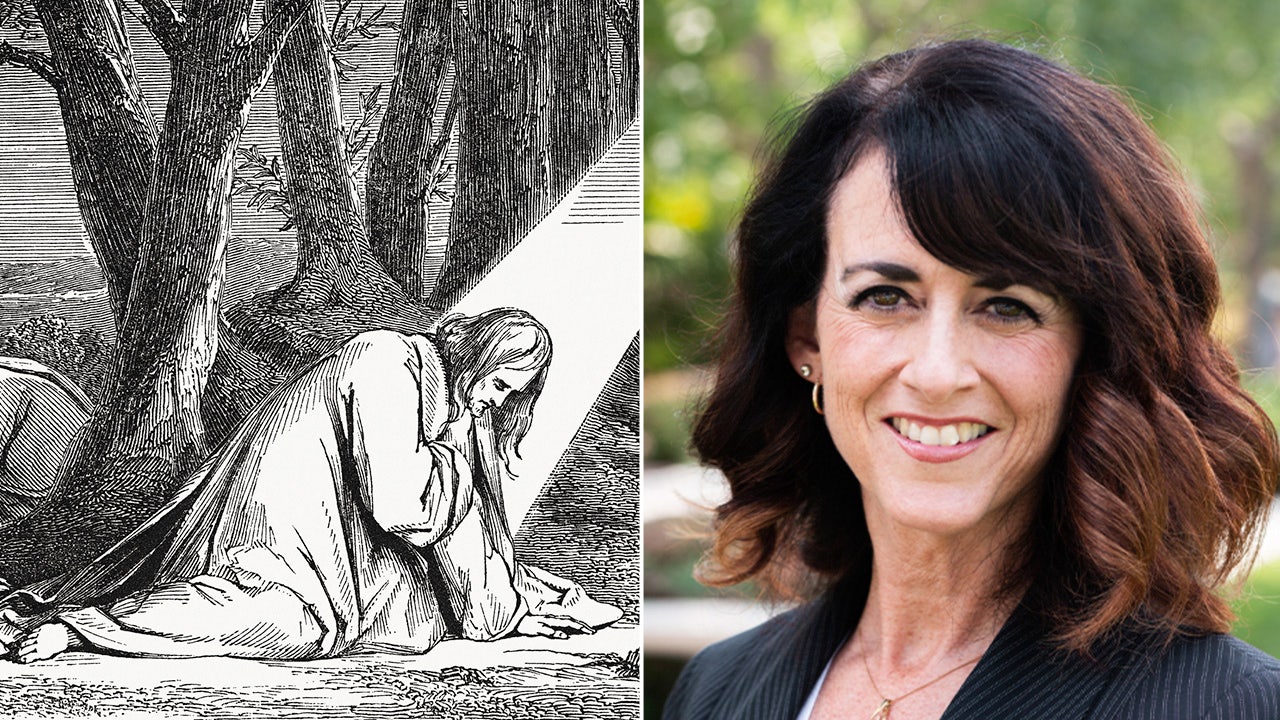Christians should meditate on the feelings of absence that the disciples experienced after the arrest and crucifixion of Jesus Christ when they, too, are feeling alone, Dr. Jeannine Hanger told Fox News Digital.
Hanger is an assistant professor at the Talbot School of Theology at Biola University in La Mirada, California.
“When my husband and I dropped our daughter off at university, we had no idea how grateful we would be for FaceTime,” Hanger told Fox News Digital via email. “What a treat to catch up with her face-to-face while our household was adjusting to her embodied absence.”
PRAYER APP REVEALS THE MOST POPULAR CHOICES BY AMERICA’S COLLEGE STUDENTS DURING LENT
But while it was comforting to see her daughter “pop up” on her phone, it was not the same as spending time with her in person, she said.
“Jesus’ disciples experience a similar adjustment period when they go from being with Jesus every day to having to adjust to life without Him,” said Hanger.
Dr. Jeannine Hanger of Biola University reflected on the “farewell discourse” from John’s gospel and what it means for Christians in the modern era. (iStock/Biola University)
In John’s Gospel, shortly before Jesus is arrested in the Garden of Gethsemane, Jesus delivers the “farewell discourse,” said Hanger, “an extended conversation with His friends to prepare them for His absence.”
The message, she said, “seems mixed.”
EASTER SYMBOLS HELP REVEAL THE TRUE MEANING OF THE SEASON, SAYS CHRISTIAN WRITER
“On the one hand, Jesus tells them, ‘I am leaving you’ — but in the next breath, He says, ‘I will be with you,’” said Hanger.
She said this is “not unlike a FaceTime call,” where you are “with” but not physically present with someone.
“Jesus is speaking, of course, of His death, resurrection, ascension and the coming Holy Spirit,” she said.
“Though Jesus will no longer be bodily present, His abiding Spirit assures us He is near.”
Jesus, after His death, was no longer “bodily present” — but that does not mean He was gone completely, said one doctor of theology. (iStock)
This “nearness,” she said, may be hard for a person to grasp.
“Consider the following metaphor sprouting up in the middle of Jesus’ farewell address. Jesus says, ‘I am the true vine, my Father is the gardener … and you [the disciples] are the branches,'” she said.
MAINE PRIEST, DURING LENT, URGES TAKING TIME TO ACKNOWLEDGE GOD’S CONSTANT PRESENCE AMONG US
God’s mission of salvation started with Israel and “is now being fulfilled by Jesus, the true vine and nexus of the people of God,” said Hanger.
“The Father tends the vine by caring for the branches (disciples), who in turn are exhorted to remain in Jesus, the vine.”
“The Father tends the vine by caring for the branches (disciples), who in turn are exhorted to remain in Jesus, the vine” — a reminder that Christians are never without Christ. (iStock)
Hanger said she likes this metaphor in particular, as “it pictures a stable connection between Jesus and His disciples.”
CLICK HERE TO SIGN UP FOR OUR LIFESTYLE NEWSLETTER
Said Hanger, “This is not about how branches work to become connected. It doesn’t involve yearning, or earning, or straining to get connected to the vine. It’s a snapshot of the believing life,” she said.
Just as Hanger misses her daughter and longs to be physically with her — “I suspect that we sometimes long for the embodied presence of Jesus,” she said.
“In this Lenten season, may we draw encouragement from this garden scene. These are words of life, offering the tangible reminder that we are not alone.”
For more Lifestyle articles, visit www.foxnews.com/lifestyle
Christine Rousselle is a lifestyle reporter with Fox News Digital.


